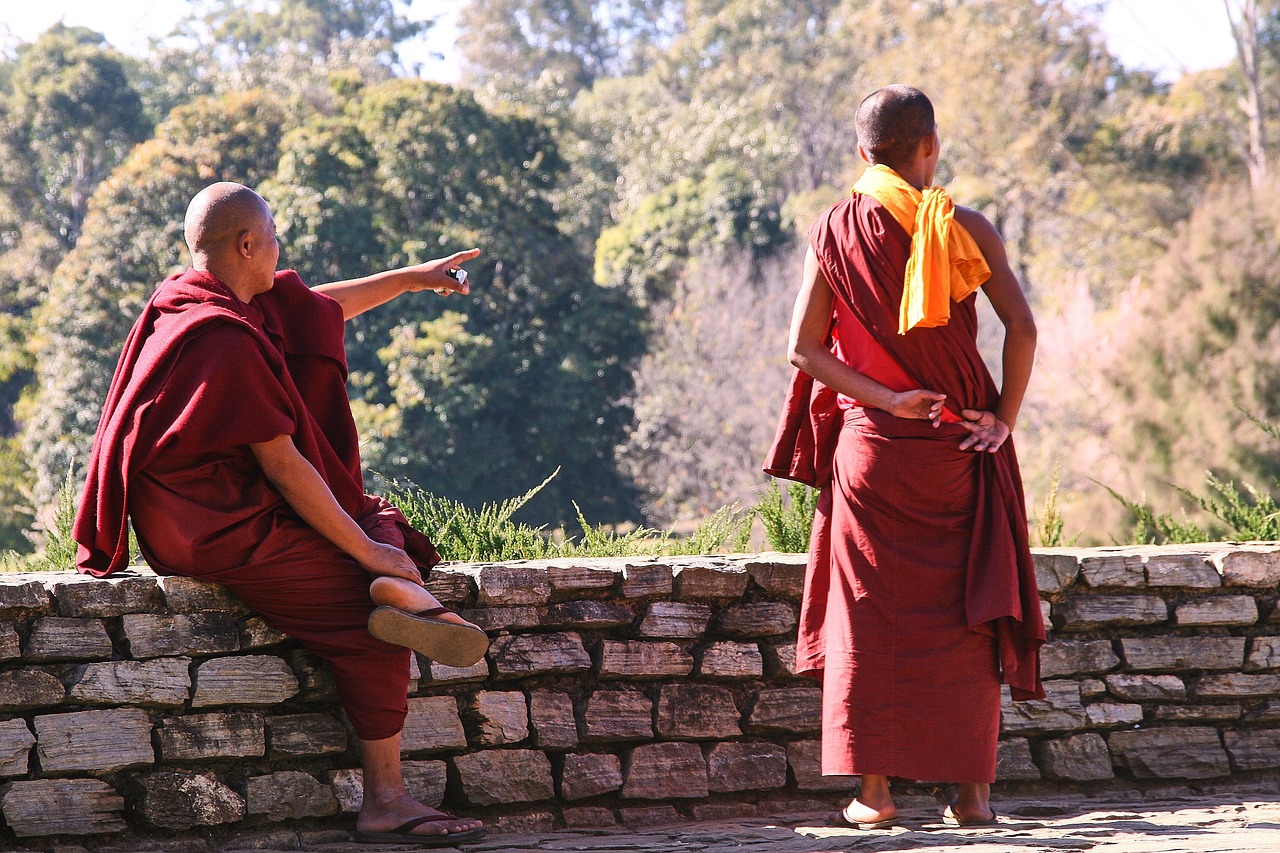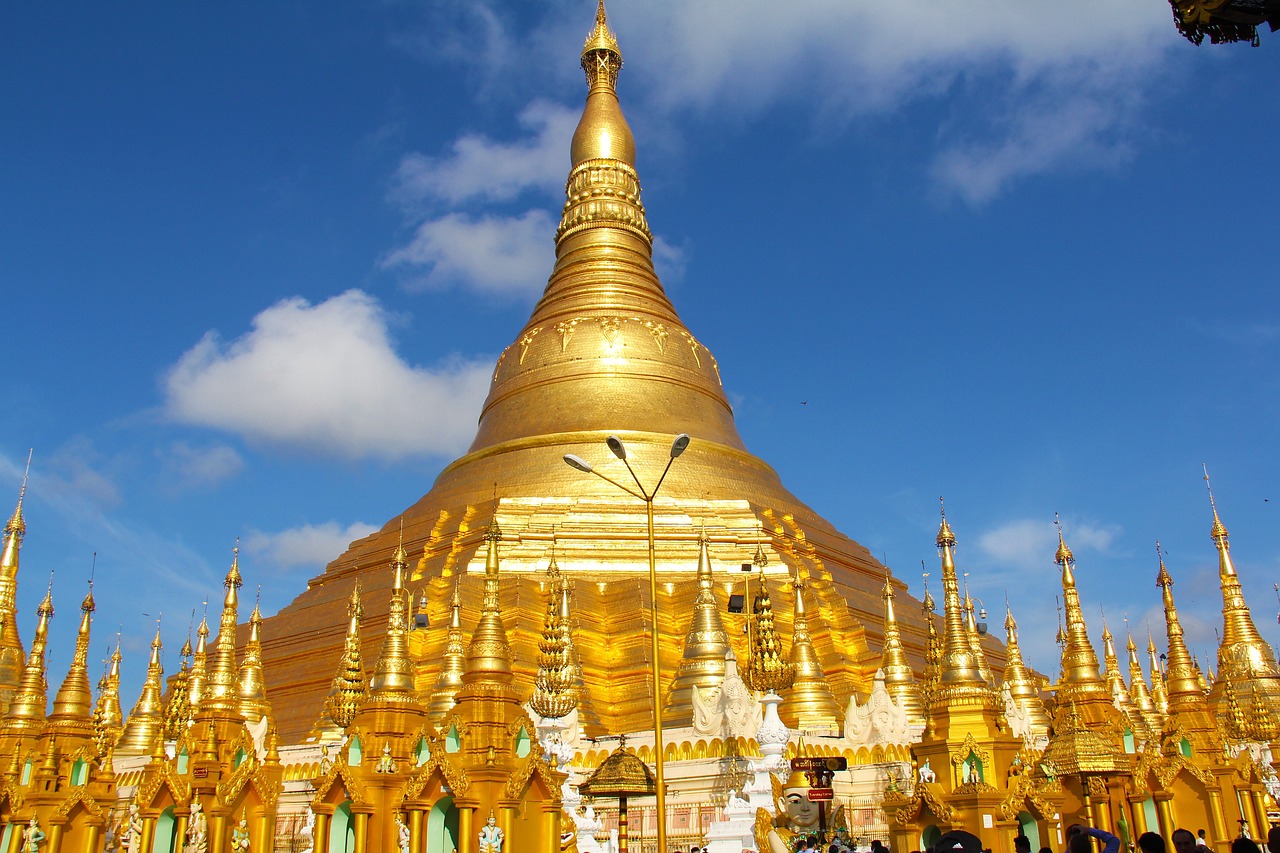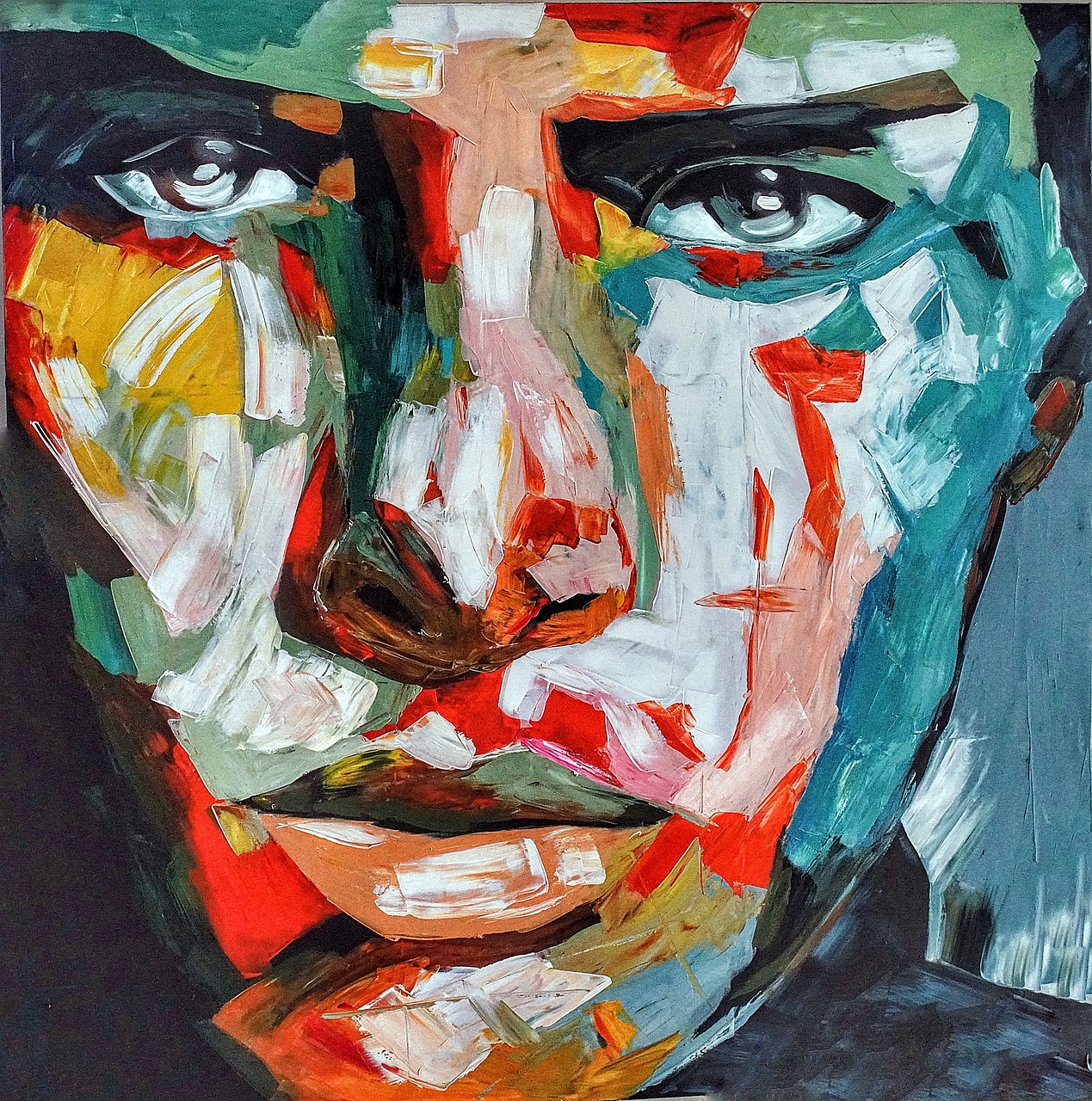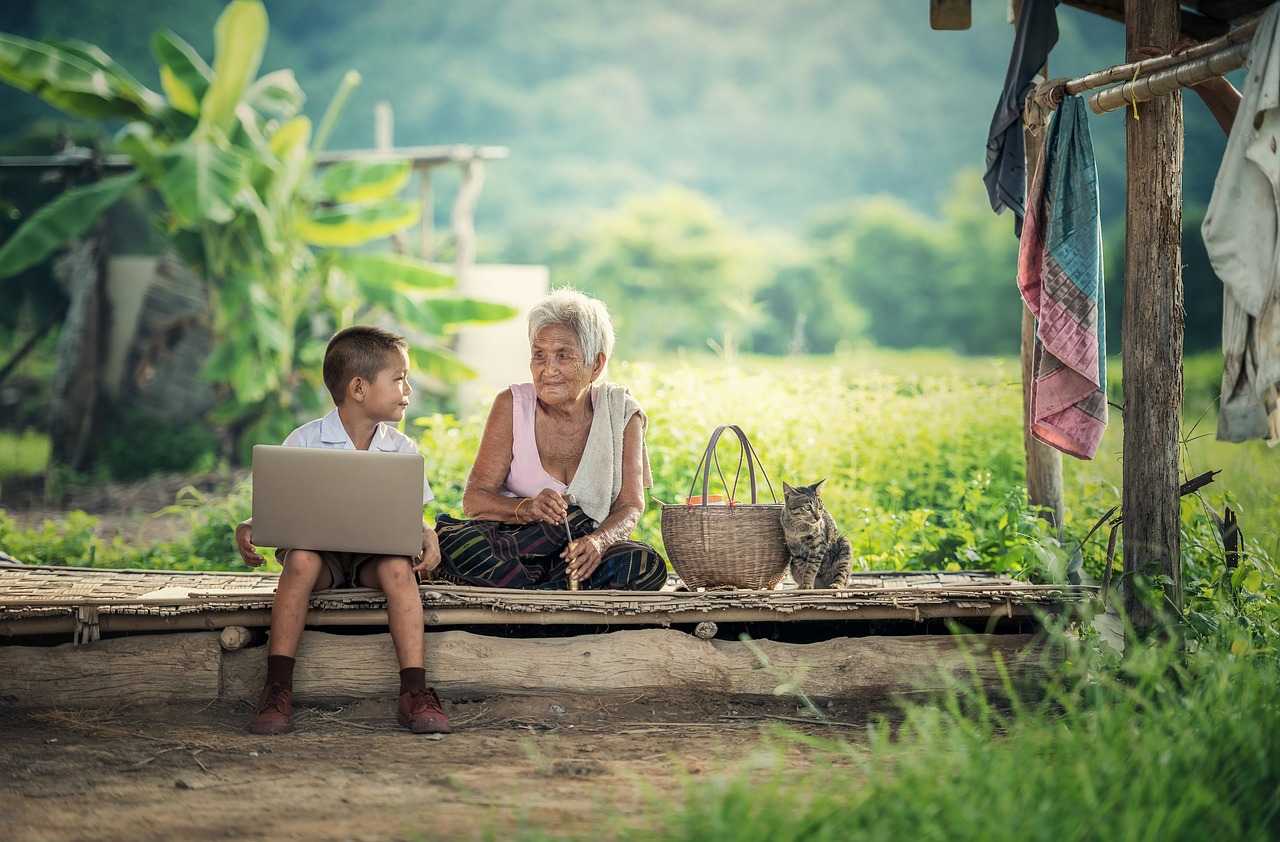Myanmar Video
Overcoming Loneliness: Social Groups and Communities in Myanmar
Loneliness is a universal human experience that can impact one’s mental and physical well-being. In Myanmar, a country rich in cultural heritage and natural beauty, social groups and communities play a vital role in helping individuals overcome loneliness. This article explores the various social groups and communities in Myanmar that provide support, companionship, and a sense of belonging to those seeking connection and friendship.
Section 1: Traditional Cultural Groups
Myanmar is home to diverse traditional cultural groups, each with its unique customs, traditions, and practices. These cultural groups serve as a source of identity and belonging for individuals looking to connect with others who share their cultural heritage. Some notable traditional cultural groups in Myanmar include:
- Bamar: The Bamar people are the largest ethnic group in Myanmar, and their culture is deeply intertwined with the country’s history. They have their traditional festivals, such as Thingyan (Water Festival) and Tazaungdaing (Festival of Lights), where people come together to celebrate and connect.
- Shan: The Shan people have a rich cultural heritage, known for their distinct language, traditional attire, and cuisine. They have traditional dance and music performances that provide opportunities for individuals to connect and engage with their community.
- Kachin: The Kachin people have a vibrant culture characterized by traditional music, dance, and festivals. Their Manaw Festival is a significant event that brings together various Kachin subgroups, fostering a sense of unity and community.
These traditional cultural groups offer individuals the chance to connect with others who share their cultural background, fostering a sense of belonging and reducing feelings of loneliness.
Section 2: Religious Communities
Religion plays a significant role in the lives of many people in Myanmar, and religious communities provide a sense of belonging and support. Here are some prominent religious communities in Myanmar:
- Buddhist Monasteries: Buddhism is the predominant religion in Myanmar, and Buddhist monasteries serve as spiritual and community centers. These monasteries often organize meditation retreats, Dhamma talks, and other activities that allow individuals to connect with like-minded people and deepen their spiritual practice.
- Christian Churches: Christianity has a significant presence in Myanmar, with various Christian denominations spread across the country. Churches provide a space for worship, fellowship, and community engagement, offering individuals an opportunity to connect with others who share their faith.
- Mosques: The Muslim community in Myanmar has a strong presence, and mosques serve as important centers for prayer and community activities. They provide a supportive environment for individuals to come together, engage in religious practices, and build meaningful connections.
Religious communities offer individuals a sense of purpose, shared values, and social support, which can help combat loneliness and foster a sense of belonging.
Section 3: Volunteer Organizations
Volunteer organizations in Myanmar play a crucial role in bringing people together for a common cause while addressing social issues. These organizations provide opportunities for individuals to contribute their time and skills, fostering a sense of purpose and connection. Some notable volunteer organizations in Myanmar include:
- Myanmar Red Cross Society: The Myanmar Red Cross Society is a humanitarian organization that offers various volunteer programs, ranging from disaster response to health promotion. By joining the organization, individuals can actively engage in community service and connect with like-minded individuals.
- Myanmar Youth Empowerment Network: This network aims to empower young people and create positive change in Myanmar. They organize volunteer projects, workshops, and events that encourage young individuals to connect, learn, and make a difference together.
- Environmental Conservation Organizations: Myanmar’s diverse natural environment has led to the emergence of several environmental conservation organizations. These organizations offer volunteering opportunities in activities such as reforestation, wildlife conservation, and environmental education, bringing together individuals passionate about preserving Myanmar’s natural heritage.
Volunteering not only allows individuals to contribute to society but also provides a platform for meeting new people, forming friendships, and combating loneliness.
Myanmar Image 1:

Section 4: Sports and Recreation Clubs
Sports and recreation clubs are popular in Myanmar, offering opportunities for individuals to engage in physical activities while connecting with others who share similar interests. Some common sports and recreation clubs in Myanmar include:
- Football Clubs: Football is a widely loved sport in Myanmar, and joining a local football club provides individuals with the chance to participate in matches, training sessions, and social events, fostering camaraderie and friendship.
- Hiking and Trekking Groups: Myanmar’s stunning landscapes attract outdoor enthusiasts, and joining hiking and trekking groups allows individuals to explore nature while connecting with fellow adventurers.
- Golf Clubs: Golf has gained popularity in Myanmar, and golf clubs provide a social and recreational environment for individuals passionate about the sport. Members can participate in tournaments, enjoy social gatherings, and build lasting relationships.
Sports and recreation clubs offer individuals a platform to pursue their hobbies, improve their physical well-being, and develop social connections, thereby reducing feelings of loneliness.
Section 5: Professional Associations
Professional associations in Myanmar bring together individuals from specific industries or fields, creating networking opportunities and fostering professional relationships. These associations provide a sense of community and support among professionals. Some notable professional associations in Myanmar include:
- Myanmar Medical Association: The Myanmar Medical Association serves as a platform for healthcare professionals to connect, share knowledge, and collaborate on healthcare initiatives. They organize conferences, seminars, and workshops that facilitate professional networking and development.
- Myanmar Bar Association: Lawyers in Myanmar can join the Myanmar Bar Association, which promotes legal education, professional ethics, and camaraderie among legal professionals. The association organizes events and activities that allow lawyers to connect and exchange ideas.
- Myanmar Engineering Society: The Myanmar Engineering Society brings together engineers from various disciplines, providing opportunities for professional development, knowledge sharing, and networking.
Professional associations offer individuals a chance to connect with peers, exchange ideas, and access resources that can enhance their professional growth, ultimately reducing feelings of isolation.
Myanmar Image 2:

Section 6: Community Centers
Community centers play a vital role in fostering social connections and providing a space for various activities and events. These centers often organize programs that cater to different age groups and interests, encouraging community engagement. Some examples of community centers in Myanmar include:
- Yangon Heritage Trust: The Yangon Heritage Trust focuses on preserving and promoting Yangon’s cultural heritage. They organize community events, heritage walks, and workshops that allow individuals to connect while learning about the city’s rich history.
- Yangon Zoo and Botanical Gardens: The Yangon Zoo and Botanical Gardens serve as recreational spaces where families and individuals can spend time together, connect with nature, and engage in leisure activities.
- Mandalay Cultural Center: The Mandalay Cultural Center hosts various cultural events, exhibitions, and performances, providing a platform for artists and individuals interested in arts and culture to connect and appreciate Myanmar’s artistic heritage.
Community centers serve as gathering places for individuals to come together, participate in shared activities, and build relationships, helping combat loneliness and foster a sense of community.
Section 7: Social Media Groups
In the digital age, social media platforms have become a popular avenue for individuals to connect and form communities online. Myanmar is no exception, with various social media groups catering to specific interests and demographics. Some prominent social media groups in Myanmar include:
- Myanmar Food Lovers: This group brings together individuals passionate about Myanmar cuisine, providing a space for sharing recipes, restaurant recommendations, and culinary experiences.
- Myanmar Photography Enthusiasts: This group allows photographers of all levels to connect, share their work, and engage in discussions about photography techniques, equipment, and local photography opportunities.
- Myanmar Travel Community: Travel enthusiasts can join this group to seek advice, share travel experiences, and connect with fellow explorers, fostering a sense of camaraderie and friendship.
Social media groups provide individuals with a virtual community where they can connect with like-minded individuals, share common interests, and find support, reducing feelings of loneliness in the digital sphere.
Section 8: Language Exchange Programs
Language exchange programs offer individuals the opportunity to learn and practice languages while connecting with native speakers and language enthusiasts. Myanmar has various language exchange programs that facilitate cultural exchange and social connections. Some examples include:
- Myanmar Language Exchange: This program brings together individuals interested in learning Myanmar language (Burmese) with native speakers. Language exchange sessions, cultural events, and group activities provide a platform for individuals to connect and learn from one another.
- English Conversation Clubs: English language learners in Myanmar can join conversation clubs that provide a supportive environment for practicing English with native speakers and fellow learners. These clubs often organize language-focused activities and social events.
- International Language Exchange Meetups: These meetups cater to individuals interested in learning and practicing various languages, including English, Burmese, and other foreign languages. Participants can connect with people from different cultural backgrounds and improve their language skills simultaneously.
Language exchange programs offer individuals the opportunity to develop language skills, gain cultural insights, and form connections with people from diverse backgrounds, thereby combating loneliness and fostering cross-cultural understanding.
Myanmar Image 3:

Section 9: Arts and Crafts Workshops
Arts and crafts workshops provide individuals with a creative outlet while offering opportunities to connect with others who share a passion for artistic expression. Myanmar has a rich artistic heritage, and various workshops cater to different art forms. Some examples include:
- Traditional Myanmar Puppetry Workshops: These workshops allow individuals to learn the intricate art of traditional Myanmar puppetry, connect with master puppeteers, and appreciate the cultural significance of this art form.
- Myanmar Traditional Dance Classes: Dance enthusiasts can join Myanmar traditional dance classes to learn the graceful movements and connect with fellow dancers who share an appreciation for Myanmar’s cultural dances.
- Art and Painting Workshops: Artists of all levels can participate in art and painting workshops that provide a supportive environment for exploring different techniques, connecting with fellow artists, and showcasing their work.
Arts and crafts workshops offer individuals a chance to express themselves creatively, learn new skills, and build relationships with others who share their artistic interests, reducing feelings of isolation.
Section 10: Support Groups
Support groups in Myanmar provide a safe space for individuals facing similar challenges or experiences to come together, share their stories, and offer support. Some notable support groups in Myanmar include:
- Mental Health Support Groups: These support groups focus on promoting mental health awareness, providing a platform for individuals to share their struggles, seek advice, and find solace in a supportive community.
- Women Empowerment Groups: Women’s empowerment groups aim to uplift and support women in Myanmar, offering a space for sharing experiences, providing mentorship, and advocating for gender equality.
- Recovery Support Groups: These groups cater to individuals recovering from addiction, providing a supportive environment for sharing experiences, seeking guidance, and fostering a sense of belonging in their journey towards recovery.
Support groups offer individuals a sense of understanding, empathy, and community, providing valuable support in overcoming loneliness and navigating challenging circumstances.
Section 11: University Clubs and Organizations
Universities in Myanmar host a variety of clubs and organizations that cater to students’ interests, allowing them to connect with peers who share similar passions. These university clubs and organizations create opportunities for socializing, personal growth, and skill development. Some examples include:
- Debate Clubs: Debate clubs provide a platform for students to engage in intellectual discussions, improve their public speaking skills, and build lasting friendships.
- Entrepreneurship Clubs: These clubs encourage students to explore their entrepreneurial potential, connect with like-minded individuals, and gain practical business knowledge through workshops and networking events.
- Cultural Exchange Organizations: Cultural exchange organizations promote cultural diversity and understanding among students from different backgrounds. They organize events, workshops, and festivals that allow students to share their cultures and build cross-cultural connections.
University clubs and organizations offer students a sense of community, personal development opportunities, and the chance to form lasting friendships, reducing feelings of loneliness during their academic journey.
Section 12: Conclusion
Loneliness is a common human experience, but in Myanmar, various social groups and communities provide avenues for individuals to overcome this feeling. From traditional cultural groups and religious communities to volunteer organizations and university clubs, there are numerous opportunities for individuals to connect, find support, and foster a sense of belonging. By actively engaging in these social groups and communities, individuals in Myanmar can combat loneliness, enhance their well-being, and build meaningful relationships.
References
– Myanmar Red Cross Society: myanmarredcross.org
– Myanmar Youth Empowerment Network: mynet.org.mm
– Yangon Heritage Trust: yangonheritagetrust.org
– Myanmar Medical Association: mma.org.mm
– Myanmar Bar Association: myanmarbarassociation.org
– Myanmar Engineering Society: mes.org.mm


